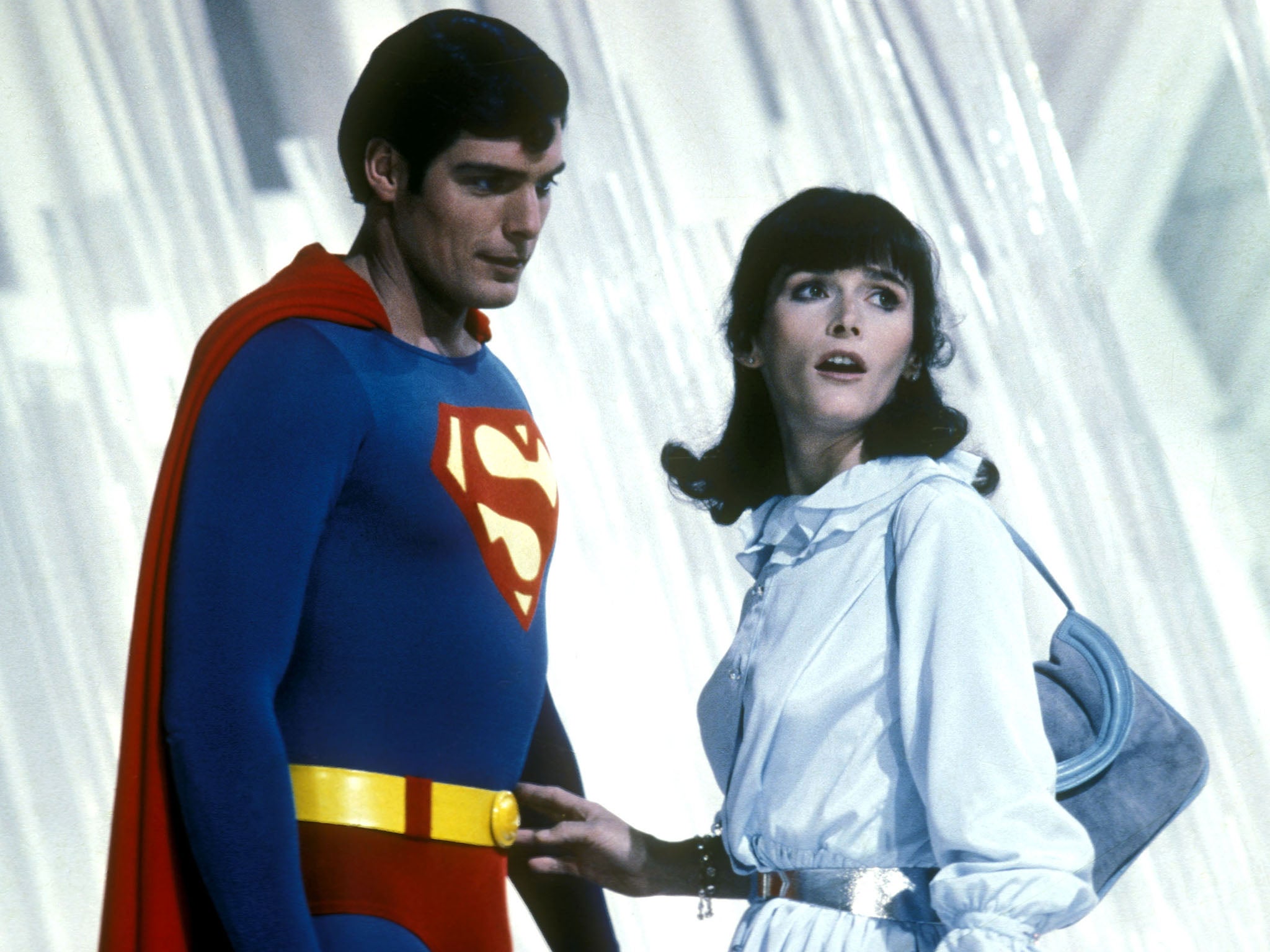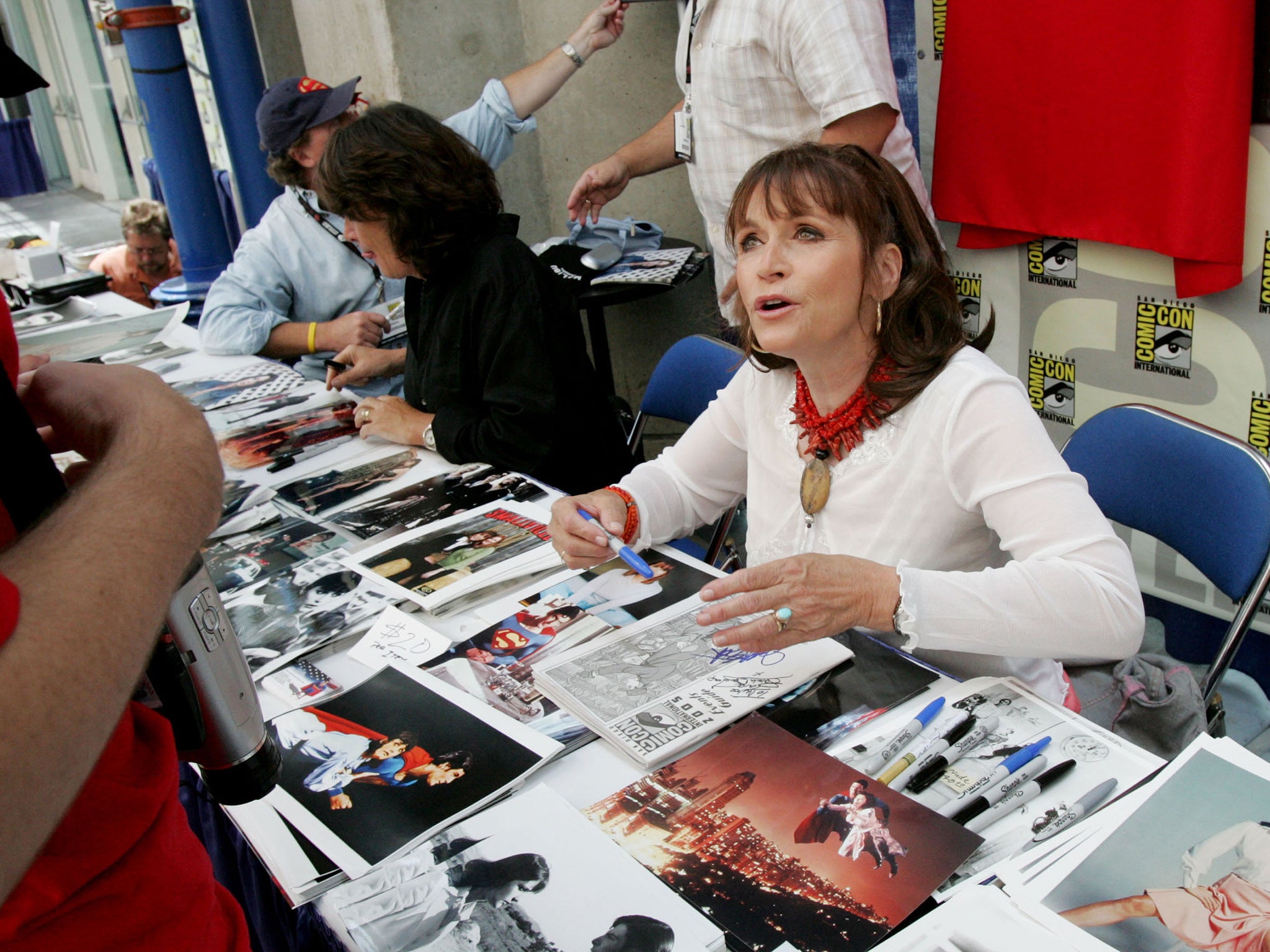Margot Kidder: Actor who played Lois Lane opposite Christopher Reeve in Superman films
She spoke out against the First Gulf War and campaigned for abortion rights but both her political activism and her acting career took a backseat to her struggles with mental health

Margot Kidder was the raspy-voiced actress who played reporter Lois Lane in the Superman phenomenon opposite Christopher Reeve.
Kidder, who has died aged 69, was a self-described “scream queen” in her early roles. Her suggestion of cunning and sensuality elevated Brian De Palma’s thriller Sister in 1972 and the Canadian slasher film Black Christmas (1974).
Reviewing Sisters, the late film critic Pauline Kael said Kidder could “turn on sexiness with a witch’s precision”.
To the wider world, she was still largely unknown when director Richard Donner cast her and an obscure stage actor, Christopher Reeve, in Superman, his 1978 big-budget reboot of the 1950s TV series.
“I thought it was going to be a big turkey,” Kidder said later.
The film’s great advantage was the chemistry provided by the two leads. Kidder played Lane as sassy and temperamental, and Reeve gave a delightfully deadpan performance as the nerdy, fumbling newsroom colleague, Clark Kent, who transforms into the swoon-worthy Superman. In one scene she falls from a helicopter and he races skyward to rescue her.
“You’ve got me,” she says in disbelief. “Who’s got you?”

The director also recruited a heavyweight supporting cast that included Gene Hackman as villain Lex Luthor and Marlon Brando as Superman’s father, Jor-El. Superman proved a blockbuster with audiences and disarmed most critics.
Kidder recalled the trials and errors of making a superhero movie with fairly crude special effects evoking flight.
“The first scene I do with him when we fly off the balcony, we had to do something like 84 takes,” she said in 2014. “Now part of that was because the guy who ran the wheel with the thing that lifted us up in the air was a little drunk all the time, and he would wheel me into Chris and we’d crash in midair and he’d drop me into bushes.
“Physically it got very uncomfortable to say the least,” she added. “We’d have a week where we’d turn left, around the Statue of Liberty, and then you’d turn right around the Leaning Tower of Pisa, so it was a bit hard.”
She said Reeve, making one of his first screen appearances, became irritated whenever she would read during breaks. “He’d say, ‘You don’t stay in character?’ I’d say, ‘For Christ’s sake, Chris, I’ve been Lois Lane for a year, all you do is look left, I can handle it.’ And I’d pull out my book and he’d get very cross.”
Kidder reprised Lane in three Superman sequels over the next decade. She also returned to her fright-film roots with The Amityville Horror (1979), a major box office success. But she was unable to sustain consistent quality in her subsequent work. She earned solid reviews as a brassy free spirit in the drama Heartaches (1981), but that was followed by a precipitous drop to Little Treasure (1985), playing a stripper.
She increasingly devoted her time to liberal activism, including appearances at rallies for Jesse Jackson’s 1988 presidential campaign. She also spoke out in favour of abortion rights, against nuclear arms and the First Gulf War. She burned through three marriages and her heavy drinking and erratic behaviour left her with few supporters in a film colony where friendships are often transactional.
In 1990, while in Vancouver filming a cable series, she suffered serious back injuries in a car accident that left her unable to work for two years and reliant on painkillers. Her surgical bill of $600,000, for which she could not find coverage, left her reeling financially.
In manic episodes during her paycheck heyday, she recalled spending “millions of dollars buying things for friends, taking people to Paris”. She was now forced to declare bankruptcy and leave her home for a one-bedroom apartment near Hollywood.
Then, in 1996, she endured what she later jokingly called the “biggest nervous breakdown in history, bar possibly Vivien Leigh’s”.
“If you’re gonna fall apart,” she advised, “do it in your own bedroom.”
Her collapse, she said, was triggered by a virus on her laptop that erased years of work on a memoir. The loss sent her spiralling. She became convinced that her first husband, author Thomas McGuane, was trying to kill her with the help of the CIA. She slashed her hair and removed several teeth in a bid to go unrecognised.
Over the course of three days, she wandered the streets and narrowly escaped being raped. She was found dishevelled, penniless and disoriented in the back yard of a home in Glendale, California, and was taken to a private psychiatric clinic for evaluation. Her worrisome conduct drew an avalanche of media coverage.
Kidder gradually tried to revive her career in small-budget films, TV cameos (including the Superman prequel TV series Smallville) and stage appearances in The Vagina Monologues. She told the Guardian that she wanted to write a one-woman-show “about insanity and war”.
Margaret Ruth Kidder was born in Yellowknife, the capital of Canada’s Northwest Territories. As the family moved for her father’s career as a mining engineer, she attended 11 schools in 12 years.
“I was a hot babe with teased hair and white lipstick,” she once told said. “My mom sent me to boarding school so I wouldn’t get raped by a miner.” She was already prone to violent mood swings in her youth, and tried to take her life aged 14, swallowing codeine pills after being dumped by a boyfriend.
“I thought in acting I could let my real self out and no one would know it was me,” she said. Aged 21, Kidder played an inexperienced prostitute in Gaily, Gaily (1969), a picaresque comedy based on screenwriter Ben Hecht’s days as a Chicago newspaperman. The next year, she starred opposite Gene Wilder in the comedy Quackser Fortune Has a Cousin in the Bronx. Her other credits included The Great Waldo Pepper (1975), starring Robert Redford as a barnstorming pilot, and filmmaker Rob Zombie’s thriller Halloween II (2009).
Her first marriage, to McGuane, lasted less than a year. Her later marriages to actor John Heard and French filmmaker Philippe de Broca also were shortlived. For years, she was also in a relationship with former Canadian prime minister Pierre Trudeau. She had a daughter with McGuane.
“Acting’s fun, but life’s more important,” Kidder told the Guardian of her professional trajectory. “I guess I came to terms with my demons ... Horrifying as it was to crack up in the public eye, it made me look at myself and fix it. People were exploitative. That’s human nature.”
“My grandson sees me as Lois on TV every Christmas,” she added, “and that scores me points”.
Margot Kidder, actor, born 17 October 1948, died 13 May 2018
© Washington Post
Join our commenting forum
Join thought-provoking conversations, follow other Independent readers and see their replies
Comments
Bookmark popover
Removed from bookmarks